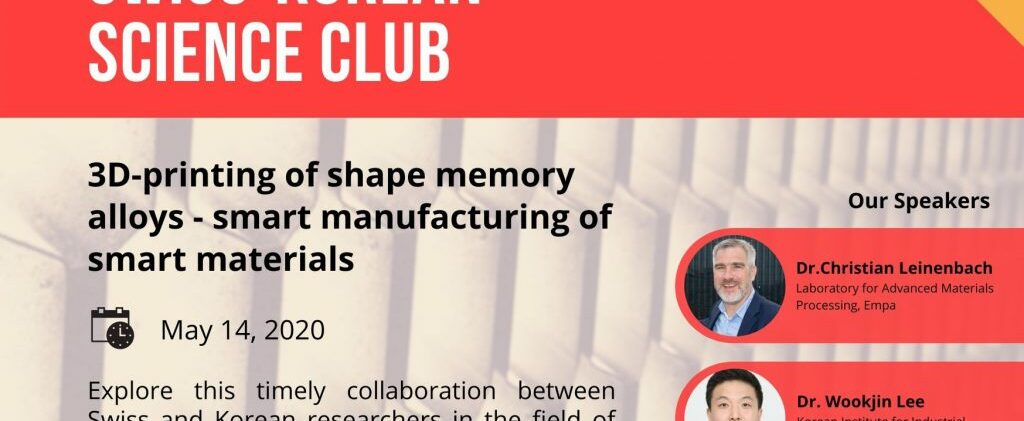
This month's speakers
-
![]()
Bio
Dr. Christian Leinenbach
Head, Alloy Design for Advanced Processing Technologies (ADAPT) GroupChristian Leinenbach received his M.Sc. in Materials Science and Engineering from the University of Saarbrücken (DE) in 2000 and his PhD from the University of Kaiserslautern (DE) in 2004. He has been working at Empa since 2005, currently in the position as Head of the Alloy Design for Advanced Processing Technologies (ADAPT) Group in the Laboratory for Advanced Materials Processing in Dubendorf and Thun, Switzerland. In addition, he is adjunct lecturer for materials processing at EPFL, Lausanne, Switzerland.
Dr. Leinenbach’s research work has been focusing on the simulation-assisted development/optimization and microstructure design of structural alloys and metal-matrix composites, mainly for beam-based additive manufacturing and joining applications. Besides, he is interested in the characterization of the influence of advanced processing technologies on the microstructure and properties of complex structural materials.
-
![]()
Bio
Dr. Wookjin Lee
Senior Researcher, KITECHWookjin Lee received his Bachelor’s and Master’s Degrees from the Pusan National University, Korea and his PhD from the same university in 2012. He worked in Dr. Christian Leinenbach’s group at Empa from 2012 to 2015 as a postdoc. He has been working at KITECH since 2015, and is currently in the position of senior researcher.
Dr. Lee’s research work has been focusing on the following two fields: The first is characterizations of functional and structural materials including metal-matrix composites, shape memory alloys and ferrous materials. The second is material process design using computer-aided engineering simulations using CFD and FEM. Since 2015, he is mainly focusing on the process developments and materials characterizations of the additive manufacturing.
“3D-printing of shape memory alloys – smart manufacturing of smart materials”
Additive manufacturing (3D printing) has established itself in recent years as a useful tool for producing complex geometric components with novel properties and functionalities. At the same time, laser-based additive manufacturing processes offer the possibility of processing new types of metal alloys or composite materials that are difficult or impossible to process with conventional manufacturing processes.
The aim of this cooperation project between the Alloy Design for Advanced Processing Technologies (ADAPT) group at Empa and the Advanced Surface Coatings & Processing group from Korean Institute for Industrial Technology (KITECH) is to develop a cost-effective shape memory alloy (FGL) based on Fe and its processing by means of additive manufacturing as well as the development of new functional, three-dimensional structures that use the unique properties of the SMA and that can only be produced in 3D printing.
First of all, the basic processability of the SMA should be demonstrated using laser-based additive manufacturing processes and its microstructure and thermo-mechanical properties such as pseudo-elasticity and shape memory effect should be characterized depending on the process parameters.
Then novel complex-geometric structures and components are designed on the basis of computer simulations with unusual mechanical properties that cannot be achieved with conventional materials. The component geometries are inspired by potential applications in construction for which these material properties are important (e.g. seismic dampers).

